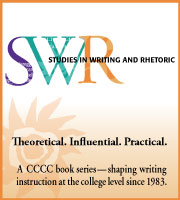Characterization of Institution
Research Intensive, headed toward Research Extensive
It has been raising the bar on expectations for tenure for the past decade, although it seems to respect the conditions under which people were hired.
Characterization of Department
M.A. granted in English (concentrations in Children’s Literature Technical Communication)
(We are working on the ED.D with a department in the College of Education. Approval of this degree is some years away.)
There are 20 tenured/tenure-track faculty and 12 non-tenure track lecturers, mostly with MA degrees. About a third of the tenured faculty have had some contact with writing centers in their past and most of the lecturers have worked in our writing center. The department is down about 8-10 tenure-line positions since the early 90’s, through retirements and job transfers.
How would this case turn out in your department? At your university/college?
I think this case at my university would have proceeded pretty much as it did in the case study. Our department has been open (perhaps too open) to faculty changing directions in scholarly interests even before tenure. Guzman was hired to develop a program in technology and tenure, which she did. She has developed a reputation in technology, which she was expected to do when she was hired. I don’t think the science emphasis would be a problem here because the project was developed within the technology paradigm for which she was hired.
At the third year review, in our review committee we might have commented on her time spent in the writing center. As chair of the committee, I would have made sure that this would have been part of the committee discussion since that was what she was hired to do, and the department should have reasonable expectations that the appropriate amount of time/effort/energy would be spent in that area. The committee third year recommendation would have been more directive, pointing her toward attention that must be paid to the writing center.
She would have gotten tenure based on her scholarship and presumed good teaching. She would not have been denied even if her performance as director of the writing center remained below average, because if this is conceived as service, service doesn’t count very much. It especially would have been a non-issue if the writing center was functioning, even if the quality could have been raised.
What are the Department Chair’s responsibilities toward Guzman? Which did she/he fulfill? Fail?
I think much of the problem began at hiring. The hiring committee and the department overlooked a critical part of he job that they wanted Guzman to perform. Because of this, she may have interpreted her hiring differently: that directing the writing center was not central to her duties and that the department was much more flexible than it turned out to be. At hiring, it is the Chair’s responsibility to make duties clear to potential hires. It may also have been his/her responsibility to keep in close touch during non-review years with Guzman’s progress and to advise her of her writing center responsibilities. I don’t know that she/he could have foreseen the response of the review committee at the third year, however.
In general, I think it is a chair’s responsibility to walk that fine line between making sure that people do what they were hired to do (so you don’t have to make another hire in the same area) and encouraging creativity and versatility. It also may be the chair’s responsibility to mentor and encourage new faculty and to keep them informed of their progress toward tenure. It is not his/her responsibility to “support” them after the fact or when another chair may have blown it at an earlier date.
What are the Personnel Committee’s responsibilities toward Guzman? Which did they fulfill? Fail?
Responsibilities of the Chair of Review. In this case study, the review/personnel committee and its chair failed in its responsibility to give feedback to the chair and through him/her to Guzman about her performance in the writing center. The chair of the committee also failed to elicit from committee members their “true” feelings about Guzman, that they were unhappy about her scientific leanings. The chair also failed to remind the committee of the conditions under which Guzman was hired and the department’s stated policy to accept on-line and technological research. However, in my department’s review committee, it is often the case that committee members will not discuss negative issues for fear of losing a position or for fear of not being “collegial” (in our department’s case.) It is often difficult to be critical and if you are, you might be seen as “negative” or “uncollegial” even where a negative judgment is warranted.
At the fifth year, the chair of the committee (or perhaps the chair of the department) should discuss with Guzman how she sees her future within this English department. Without this discussion and follow-up work with the members of the department, Guzman may very well get tenure, but abandon the writing center and become alienated from the department.
What are the responsibilities of the Dean? Which did she/he fulfill? Fail?
Having never been a Dean, I am less certain of his/her responsibilities. Since hiring is contractual, I would guess that the Dean must be certain of the match between the candidate’s qualifications and the needs advertised. A mismatch might even raise legal questions, especially if other candidates may have been overlooked or bypassed in the search if the requirements change. It would be the Dean’s responsibility to question the chair at every point in the tenure process, again for mostly legal reasons.
What are Guzman’s responsibilities? Which did she fulfill? Fail?
At the third year, Guzman needs to be reminded of her responsibilities by the chair of the department. She needs to know from the chair the unofficial position of the department and the possible negative ( mostly interpersonal it seems) fallout if she continues to lean even more toward scientific enactments of her technology scholarship. She needs to know that her performance in the writing center is not seen as fulfilling her contract–if this is the case. It is not clear in the case study that she was told any of this stuff by the chair, dean or whomever, and she should have been.
Once she knows or is reminded of these responsibilities and if she were to continue in directions that are not within her original or third year contract, she might expect some repercussions. In her tenure document, she has the responsibility to explain her past performance, especially as it fits into the goals of the department. She must also explain her performance in the writing center, which seems to be the main reason she was hired. She has the responsibility to find a balance between the needs (not the biases) of the English Department and her own scholarly needs and aspirations and to explain that balance to her department and the rest of the university
What went wrong? What went right?
In many universities (and this is the case here also) the third year review seems to be pro forma. It seems that few places have the stomach to be tough, to outline clearly what expectations are and are not being met. In this case, as I said, it is not clear if Guzman ever found out the “unofficial” version of the third-year decision. If she never found out, that would have been a mistake. Probably the pressure to raise the teaching load instead of working with Guzman to define the position is a mistake. The department chair’s promise of support seems hollow if it is only support for tenure; the support should include ways to help Guzman identify herself within the social context of her department so she will not be ostrasized.
I think hiring people with many talents is a right thing to do. The program in technology and curlture seems like innovative thinking. However, the whole department has to be on board with decisions to hire folks outside the box, even when there is a stated departmental policy to support such scholarly efforts.












